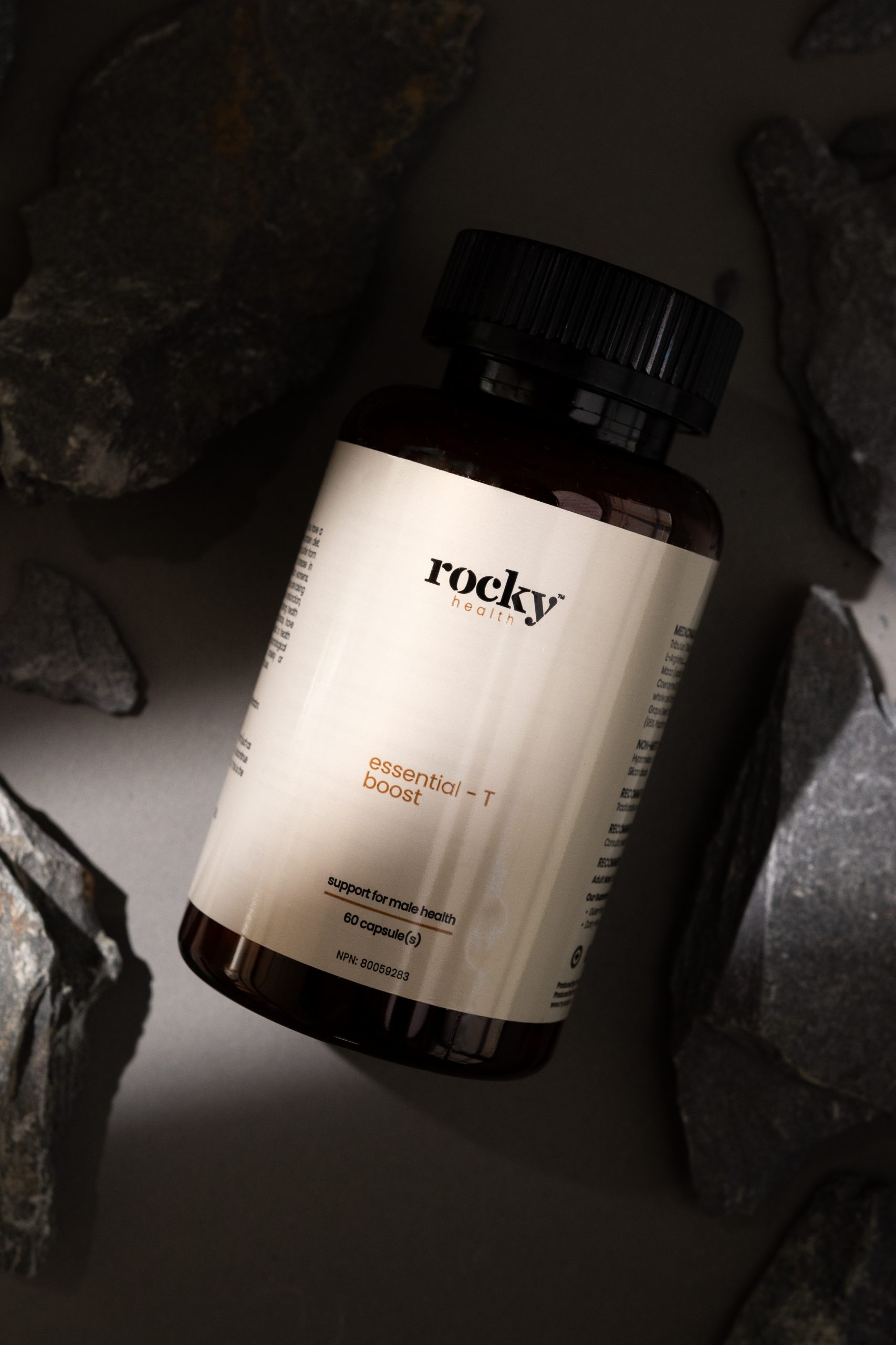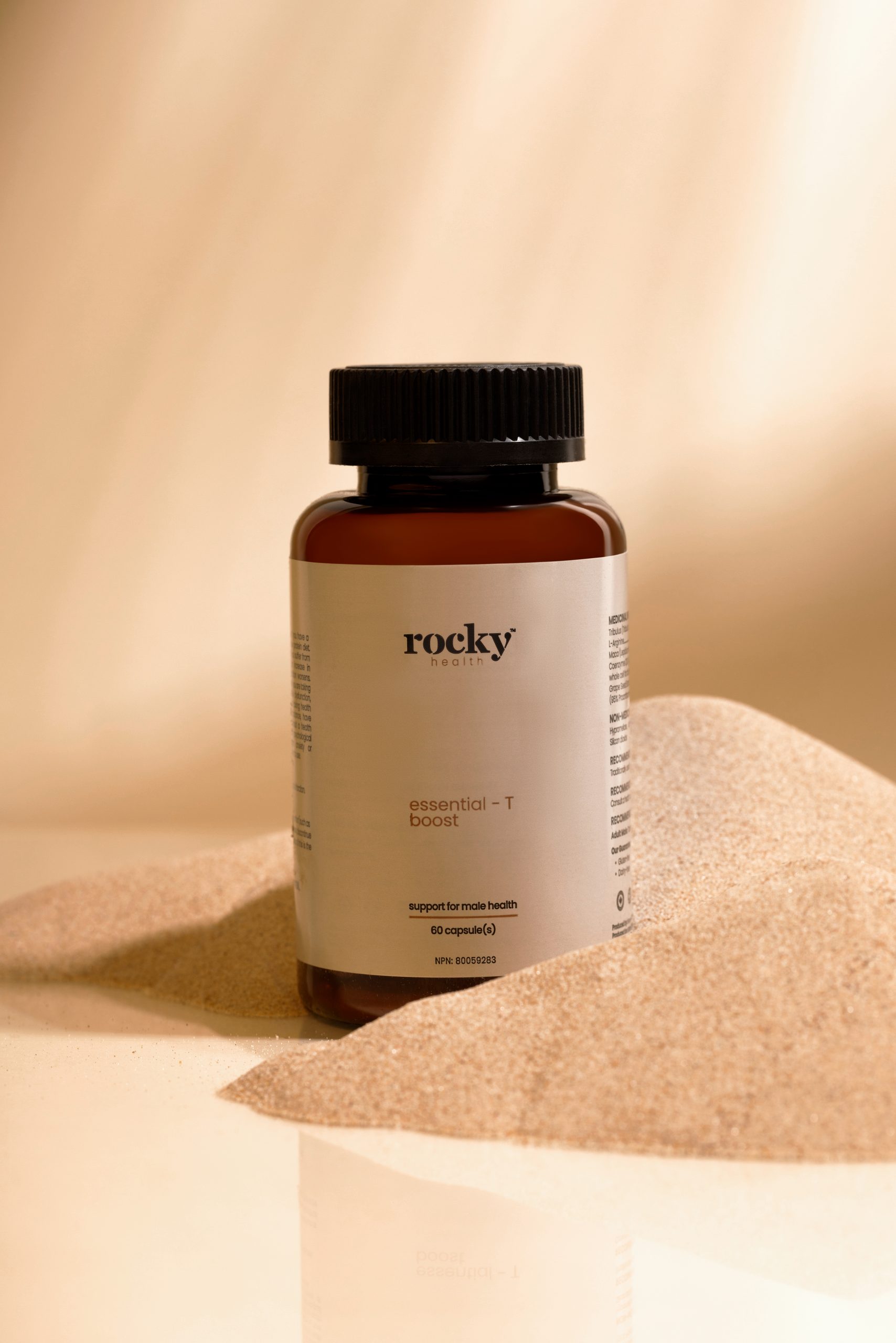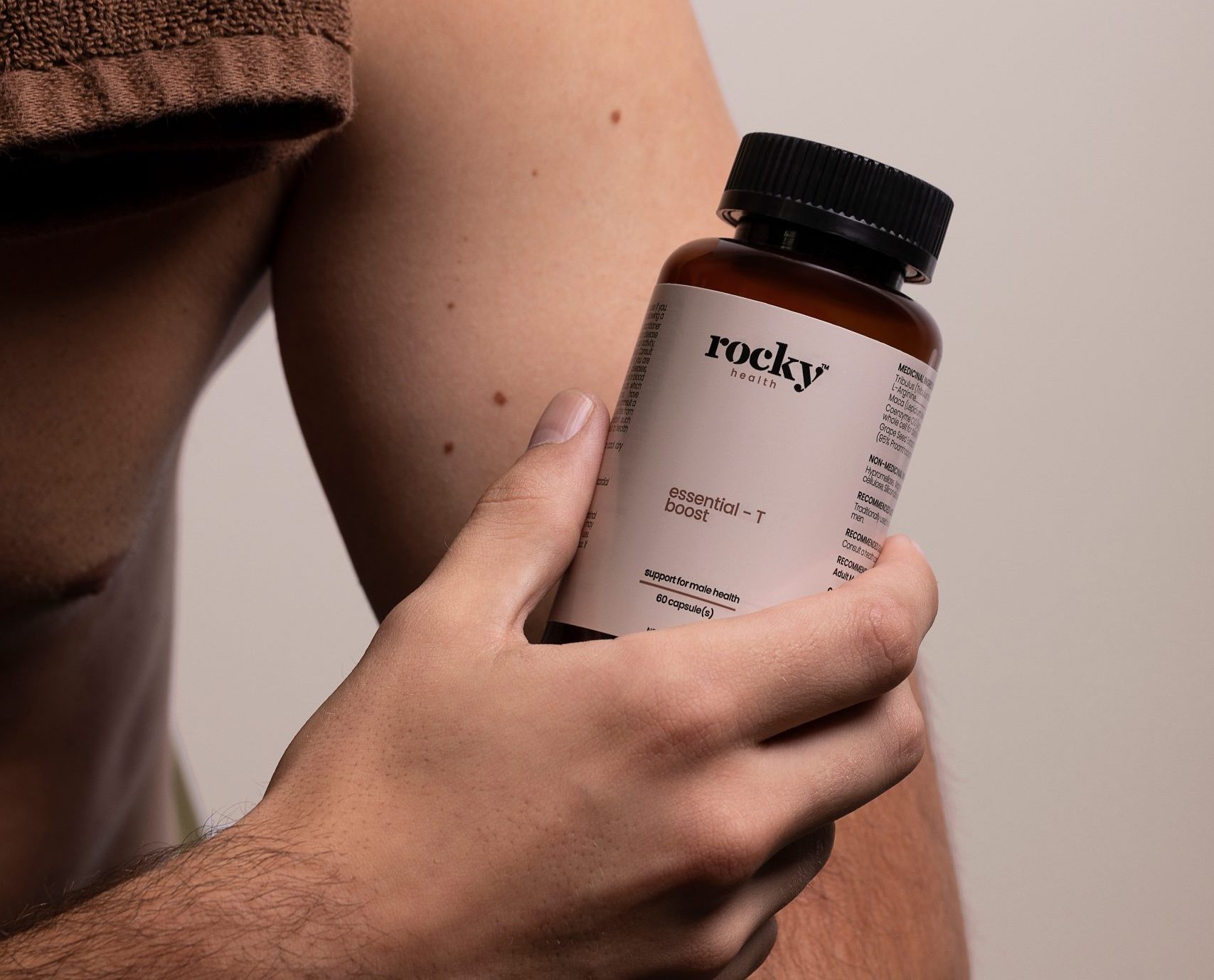Introduction: The Truth About Testosterone Supplements
If you’ve been feeling more tired, less motivated, or noticing changes in strength or libido, you’re not alone. Many Canadian men experience a gradual drop in testosterone as they age — typically around 1% per year after age 30.
With this decline, testosterone supplements have become a popular topic. Promises of increased energy, improved mood, and muscle growth sound appealing but how effective are they really?
This guide breaks down what testosterone supplements are, how they work (if they do), and what the science says about ingredients and safety. We’ll also explore how these products are regulated in Canada and how to choose supplements from trusted sources.
What Are Testosterone Supplements?
Testosterone supplements are over-the-counter (OTC) products that claim to help raise testosterone levels naturally or support testosterone production.
They usually contain vitamins, minerals, herbal extracts, or amino acids thought to influence hormone balance, energy, or muscle function. These supplements are not the same as prescription testosterone replacement therapy (TRT), which involves medically prescribed testosterone via injection, gel, or patch for men diagnosed with low testosterone (hypogonadism).
Signs of Low Testosterone in Men
Before considering supplements, it’s important to recognize possible signs of low testosterone. Some of the most common include:
- Fatigue or low energy.
- Reduced libido or sexual performance.
- Loss of muscle mass or strength.
- Increased body fat (especially around the abdomen).
- Mood changes (irritability, depression, or brain fog).
- Decreased motivation or drive.
If several of these sound familiar, it’s a good idea to speak with a healthcare provider before self-treating. A simple blood test can determine your testosterone level (if you have a testosterone deficiency) and whether you might benefit from lifestyle changes, supplements, or medical therapy.
Do Testosterone Supplements Really Work?
The short answer: some ingredients may help support testosterone levels slightly, but no over-the-counter supplement has been proven to raise testosterone to clinically significant levels in men with normal hormone function.
Most research shows that these products might help only if your testosterone is borderline low due to nutrient deficiencies or stress. For example:
- If you’re low in vitamin D or zinc, restoring those nutrients can help optimize testosterone production.
- Some herbal extracts (like fenugreek or ashwagandha) may support hormone balance indirectly by lowering stress hormones, improving sleep, or increasing physical performance.
However, supplements cannot replace medical testosterone therapy in men with diagnosed hypogonadism.
 The Science Behind Testosterone-Boosting Ingredients
The Science Behind Testosterone-Boosting Ingredients
| Ingredient | What It Does | Scientific Evidence |
|---|---|---|
| Vitamin D | Supports hormone and sperm production; acts as a precursor for steroid hormones. | Studies show that men deficient in vitamin D may experience a modest testosterone increase after supplementation [2]. |
| Zinc | Important for enzyme activity and testosterone synthesis. | Zinc deficiency is linked to lower testosterone; restoring normal levels can normalize hormone balance [3]. |
| Magnesium | May help increase free testosterone levels. | Some evidence suggests athletes deficient in magnesium see a small increase after supplementation. |
| Fenugreek Extract | Contains compounds that may reduce testosterone breakdown. | Research is mixed; some small studies report slight increases in testosterone and improved libido [2]. |
| Ashwagandha (Withania somnifera) | Adaptogenic herb that reduces cortisol and supports hormone balance. | Clinical studies show ashwagandha may modestly increase testosterone in stressed or infertile men [2]. |
| D-Aspartic Acid | Amino acid is thought to stimulate luteinizing hormone (LH). | Some short-term studies show increased testosterone, but effects fade with long-term use. |
| Tribulus Terrestris | Common in “testosterone booster” blends. | Multiple controlled studies show no measurable testosterone increase in healthy men [2]. |
What Happens if You Take Testosterone Supplements?
When taken consistently, testosterone support supplements can provide noticeable benefits — especially for men experiencing mild declines in energy, performance, or focus often linked to lower hormone levels.
You might notice:
- Improved energy and motivation throughout the day, thanks to key vitamins and adaptogenic herbs that help balance stress hormones.
- Enhanced recovery and muscle strength, particularly when paired with regular exercise and protein intake.
- Better mood and mental clarity, as ingredients like zinc, vitamin D, and ashwagandha support hormone regulation and stress response.
- Healthier libido and endurance, supported by improved circulation and hormonal balance.
While these supplements are not a replacement for prescription testosterone therapy in men with clinically diagnosed low T, they can play an important role in supporting natural testosterone production and helping maintain healthy hormone levels.
Are Testosterone Supplements Approved by Health Canada?
Here’s where it’s important to understand regulation and if testosterone supplements are approved by Health Canada:
In Canada, testosterone supplements are regulated as “Natural Health Products (NHPs)” by Health Canada.
That means:
- They must meet quality and safety standards before being sold.
- Each product must display an NPN (Natural Product Number), confirming Health Canada review.
- They are not approved to treat medical testosterone deficiency, only to support general men’s health.
By contrast, prescription testosterone replacement therapy (like injectable or gel formulations) is approved under the Prescription Drug List and requires a licensed clinician’s prescription.
Remember: Always check for an NPN on the label when buying supplements in Canada as this helps ensure the product meets national safety standards.
Are Testosterone Supplements Safe?
Most NHP testosterone supplements are considered safe for short-term use, especially those containing vitamins, minerals, or herbs. However, risks increase when products include unlisted or synthetic hormones, which sometimes appear in unregulated imports or “hardcore” gym formulations.
Potential side effects may include:
- Digestive upset or nausea.
- Headaches or irritability.
- Sleep disruption (from herbal stimulants).
- Hormone imbalance with unverified “testosterone booster” blends.
Tip: Avoid supplements that promise “steroid-like results”. Legitimate testosterone support products never make those claims. If you take other medications or have a medical condition (especially heart, liver, or prostate issues), always speak with your healthcare provider first.
Lifestyle Factors That Influence Testosterone Naturally
- Sleep: Aim for 7 to 9 hours per night, testosterone is released during deep sleep.
- Exercise: Resistance training (weights, HIIT) boosts natural testosterone levels.
- Nutrition: Ensure adequate intake of protein, zinc, magnesium, and healthy fats.
- Stress management: Chronic stress raises cortisol, which suppresses testosterone.
- Alcohol and weight control: Reducing alcohol and maintaining a healthy body weight improves hormone balance.
Canadian Versus U.S. Regulations: What’s the Difference?
In Canada, testosterone supplements are treated as Natural Health Products (NHPs) and must receive Health Canada approval before sale. In the U.S., the FDA classifies them as dietary supplements, meaning companies can market them without pre-approval but must remove them only if safety issues arise later. As a result, Canadian testosterone supplements tend to be more tightly regulated, with required evidence of safety and ingredient verification.
When to See a Doctor About Low Testosterone
If you’re experiencing persistent symptoms of low testosterone, don’t rely on supplements alone.
A healthcare provider can:
- Order a blood test to confirm testosterone levels.
- Rule out other causes like thyroid dysfunction or sleep apnea.
- Discuss medical testosterone therapy (TRT) options if needed.
 Final Thoughts: Balance Testosterone Supplements with Healthy Lifestyle Choices
Final Thoughts: Balance Testosterone Supplements with Healthy Lifestyle Choices
Testosterone supplements in Canada can support men’s overall health but expectations should remain realistic. While nutrients like vitamin D, zinc, and ashwagandha may provide modest hormonal benefits, no supplement replaces medically supervised testosterone therapy in men with diagnosed low T. Choosing Health Canada–approved products, prioritizing lifestyle factors, and consulting a licensed clinician remain the best steps for optimizing energy, strength, and well-being.
References
- Canadian Urological Association. Guidelines on the Diagnosis and Management of Testosterone Deficiency 2021.
- Clemesha, C. G., Thaker, H., & Samplaski, M. K. (2019). Testosterone Boosting Supplements Composition and Claims Are Not Supported by the Academic Literature. World Journal of Men’s Health, 38(1), 115–12.
- Te, L., et al. (2023). Correlation Between Serum Zinc and Testosterone: A Systemic Review. Journal of Trace Elements in Medicine and Biology.
- Health Canada. (2024). Licensed Natural Health Products Database (LNHPD).
Disclaimer: This article is intended for informational purposes only and is not a substitute for professional medical advice, diagnosis, or treatment. Always consult your healthcare provider with any questions about a medical condition or treatment.
Editorial Standards: At Rocky Health, we’ve made it our mission to support men and women with trustworthy, easy-to-understand medical and health information online. Read more about our editorial standards here.



